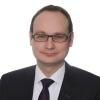On 11 July 2017, the Bundesgerichtshof (German Federal Court of Justice, “FCJ”), Germany’s highest civil court, upheld the decision of the Bundespatentgericht (Federal Patent Court, “FPC”) granting a provisional compulsory patent license for an HIV drug by way of interim measures – the first in Germany’s history. The provisional license allows the active pharmaceutical ingredient Raltegravir, used as a component in the HIV drug Isentress, to be distributed in Germany until the case is decided on the merits.
The ruling also suspended the cease and desist claims by the Japanese company Shionogi owning the European patent at issue covering Raltegravir. The FCJ’s final ruling will also have to address the question of reasonable license fees for the compulsory license.
The FPC’s decision
On 31 August 2016, by application from three companies of the MSD group (“MSD”), the FPC granted a compulsory patent license on the basis of an interim order for the use of Raltegravir as a component in Isentress for the German market. MSD has distributed Isentress for a number of years throughout Europe but faced legal challenges from Shionogi when Shionogi's European patent covering Raltegravir was granted in 2012. Currently, this European patent covering Raltegravir is the subject of opposition proceedings at the European Patent Office (“EPO”) and the EPO’s board of appeal has not yet issued its final decision on the future of this patent.
The grant of a compulsory patent license according to Section 24 (1) German Patent Act requires that:
- a license seeker has, within a reasonable period of time, unsuccessfully attempted to obtain permission from the owner of the patent to use the invention on reasonable commercial terms and conditions, and
- the public interest calls for the grant of a compulsory license.
The FPC clarified that the attempt to obtain permission to use the patent must be made in the form of genuine negotiations. This condition should not be interpreted too strictly since the condition regarding the public interest is of greater importance. The FPC regarded MSD’s offer of a onetime lump-sum of USD 10 million as a sufficient attempt to obtain Shionogi’s permission to use the drug. Furthermore, the FPC held that MSD reasonably considered the validity of Shionogi’s European patent to be in question until the final decision of the EPO’s board of appeal, thereby reducing the value of fees Shionogi could reasonably expect.
Public interest regarding healthcare has always been an important part of the debate among patent experts. This case has illustrated that even drugs for severe illnesses face difficulties in obtaining compulsory patent licenses. The FPC’s decision was heavily influenced by HIV patient groups’ need for the Isentress treatment. A change of medication would, according to the court, have resulted in a potentially severe risk of adverse effects or complications with other drugs and reduced therapy quality. The potential infection risk for the rest of the population was also considered. In light of these factors, the severe encroachment on the patent owner’s right to property was considered well justified.
Special relevance for pharmaceutical patents
Public healthcare is rightfully regarded as a key factor when considering the public interest element of this test. It has played an important role in justifying compulsory patent licenses in various jurisdictions. The FPC and FCJ’s decisions emphasise that for a strong case, severe public interest has to be demonstrated and proven by the applicant; German courts’ strict public interest tests preclude other less-legitimate reasons such as the protection of a domestic economy.
The FCJ’s recent decision will impact future license negotiations in the pharmaceutical sector. Patent owners should consider the risk of a compulsory patent license during licensing negotiations. For license seekers, the recent decisions have shown that, under certain circumstances, obtaining a compulsory license can be an effective instrument to secure licenses for crucial patents.
For more information, please contact Dr. Thomas Hirse and Paetrick Sakowski.


Social Media cookies collect information about you sharing information from our website via social media tools, or analytics to understand your browsing between social media tools or our Social Media campaigns and our own websites. We do this to optimise the mix of channels to provide you with our content. Details concerning the tools in use are in our privacy policy.